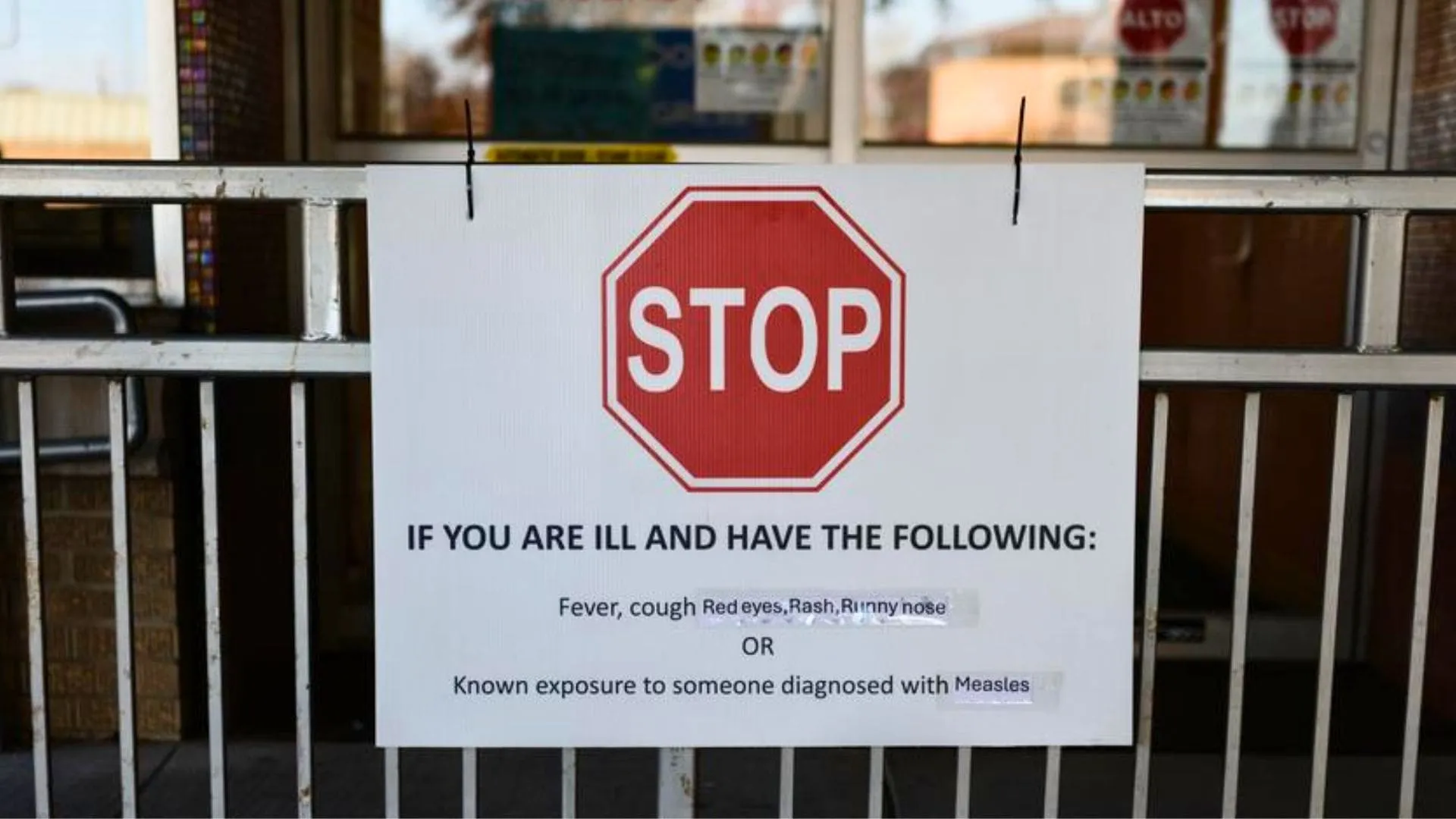Measles, a highly contagious viral disease, has been making a significant return in the United States in recent years. Health officials have reported over 350 cases of measles across multiple states, and Erie County, Pennsylvania, is the latest region to confirm its first cases. The two measles cases in Erie County are believed to be linked to international travel, raising concerns about the potential for further spread of the disease in the local community.
Although the situation in Erie County has yet to escalate into a widespread outbreak, the risk remains high, especially given the ease with which the disease can spread in unvaccinated populations. Medical experts have warned that low vaccination rates and the absence of community immunity are key factors contributing to the rise of measles cases, making it crucial to understand the implications of these two confirmed cases and the broader trend of measles outbreaks across the nation.
The Measles Virus: A Highly Infectious Agent
Measles is one of the most infectious diseases known to humans, with the ability to spread rapidly in communities where vaccination coverage is inadequate. The virus is transmitted through respiratory droplets, meaning it can spread easily when an infected person coughs or sneezes in close proximity to others. Measles can remain active and contagious in the air or on surfaces for up to two hours, increasing the likelihood of exposure.
The disease typically begins with flu-like symptoms, including high fever, runny nose, cough, and red, watery eyes, followed by a characteristic rash that usually starts at the hairline and spreads to the rest of the body. In severe cases, measles can lead to complications such as pneumonia, encephalitis (brain inflammation), and even death.
While measles was declared eliminated from the United States in 2000 due to widespread vaccination efforts, recent outbreaks have reminded health experts of the importance of maintaining high vaccination coverage to protect both individuals and communities.
Erie County’s Two Confirmed Measles Cases: A Wake-Up Call
According to the Erie County Department of Health, the two confirmed cases of measles in Erie County are linked to international travel. Although these cases have not yet led to a broader outbreak in the area, the potential for the disease to spread remains a significant concern, particularly in communities with lower vaccination rates.
Dr. Becky Dawson, a medical expert from Allegheny College, emphasized the severity of the situation, stating, “This is the most infectious agent we have on the planet.” She further noted that the risk of the disease spreading is heightened due to the lack of community immunity in Erie County, which is compounded by the fact that vaccination rates are not high enough to protect the community at large.
While Erie County has not disclosed whether the two individuals infected with measles were vaccinated, the Health Department has strongly stressed the importance of vaccination as a key measure to prevent further outbreaks. Fully vaccinated individuals are 97% less likely to contract the virus or spread it to others. As a result, public health officials are urging residents to ensure that they and their children are up to date on their vaccinations.
The Growing Measles Outbreak Across the United States
As of March 20, 2025, the Centers for Disease Control and Prevention (CDC) has reported 378 confirmed cases of measles in the United States. These cases have been spread across 18 states, including Alaska, California, Florida, Georgia, Kansas, Kentucky, Maryland, Michigan, New Jersey, New Mexico, New York, Ohio, Pennsylvania, Rhode Island, Texas, Vermont, and Washington.
The current outbreak is concerning because it represents a significant uptick in the number of measles cases compared to previous years. In 2024, there were 285 reported cases, with 69% of them being part of outbreaks. This year, the percentage of outbreak-associated cases has risen to 90%, signaling that measles is spreading rapidly within certain communities.
The States Affected by the Measles Outbreak
Among the states affected by the ongoing measles outbreak, Texas has seen the largest number of cases, with over 320 confirmed infections. Texas has also experienced several outbreaks, including a large one in the Dallas area that involved both children and adults. The outbreaks in Texas and neighboring states are believed to be largely fueled by low vaccination rates in certain communities, which has allowed the virus to spread quickly.
Other states that have reported significant numbers of measles cases include New York, California, and Florida. In particular, New York City has seen a surge in cases, with health officials scrambling to contain the outbreak. These outbreaks have raised alarms about the potential for further spread of measles, especially in areas where vaccine hesitancy and misinformation have led to lower immunization rates.
Vaccination as the Key Defense Against Measles
The return of measles in the U.S. highlights the critical importance of vaccination in preventing the spread of infectious diseases. The MMR (measles, mumps, and rubella) vaccine is the most effective tool in combating measles. When administered in two doses—one at 12-15 months of age and another at 4-6 years—the MMR vaccine provides immunity to 97% of individuals who receive it.
Despite the effectiveness of the MMR vaccine, vaccination rates have dropped in some parts of the U.S., particularly in areas where vaccine hesitancy is prevalent. This decline in vaccination coverage has created pockets of unvaccinated individuals, allowing diseases like measles to resurface and spread more easily. According to Dr. Dawson, the lack of community immunity in areas like Erie County makes it even more crucial for residents to get vaccinated to protect themselves and others.
The Consequences of Low Vaccination Rates
Low vaccination rates are a significant factor contributing to the ongoing measles outbreaks across the United States. In communities with high vaccine coverage, the spread of measles can be contained because most individuals are protected. However, in communities where vaccination rates are low, the virus can spread rapidly, especially if an infected person travels from another country where measles is still prevalent.
The CDC has emphasized that the best way to protect against measles is through vaccination. The MMR vaccine is safe and effective, with rare side effects. Vaccination not only protects the individual but also helps prevent the spread of the disease to vulnerable populations, such as infants, pregnant women, and those with compromised immune systems.
The Role of International Travel in the Spread of Measles
International travel is a key factor in the spread of measles, as individuals who travel to countries with ongoing measles outbreaks can bring the virus back to the U.S. This was the case with the two confirmed measles cases in Erie County, which were linked to international travel. Measles is still common in many parts of the world, and travelers who are not vaccinated or are only partially vaccinated are at risk of contracting the disease.
Health experts recommend that individuals who plan to travel internationally ensure that they are fully vaccinated before their trip. The CDC advises that travelers should be up to date on their routine vaccinations, including the MMR vaccine, to protect themselves and others from diseases like measles.
What Can Be Done to Prevent the Spread of Measles?
To prevent further spread of measles in the United States, health experts recommend the following measures:
-
Vaccination: Ensuring that individuals, particularly children, are fully vaccinated with the MMR vaccine is the most effective way to prevent the spread of measles.
-
Public Health Campaigns: Governments and health organizations should continue to educate the public about the importance of vaccination and address concerns related to vaccine safety.
-
Monitoring and Reporting: Health departments should closely monitor measles cases and outbreaks, particularly in areas with low vaccination rates, and take prompt action to contain the spread of the disease.
-
International Travel Precautions: Travelers should ensure they are vaccinated before traveling to countries with ongoing measles outbreaks and avoid contact with individuals who may be infected.
The Ongoing Battle Against Measles
The two confirmed cases of measles in Erie County are a reminder of the ongoing threat of infectious diseases in the United States. Although these cases have been linked to international travel, the risk of further spread remains high, particularly in communities with low vaccination coverage. Health experts are urging residents to get vaccinated to protect themselves and others from measles and other preventable diseases.
As the measles outbreak continues to unfold across the U.S., it is clear that maintaining high vaccination rates is the key to preventing the disease from spreading further. By ensuring that everyone is vaccinated, we can protect vulnerable individuals and prevent future outbreaks of this highly contagious virus.






















